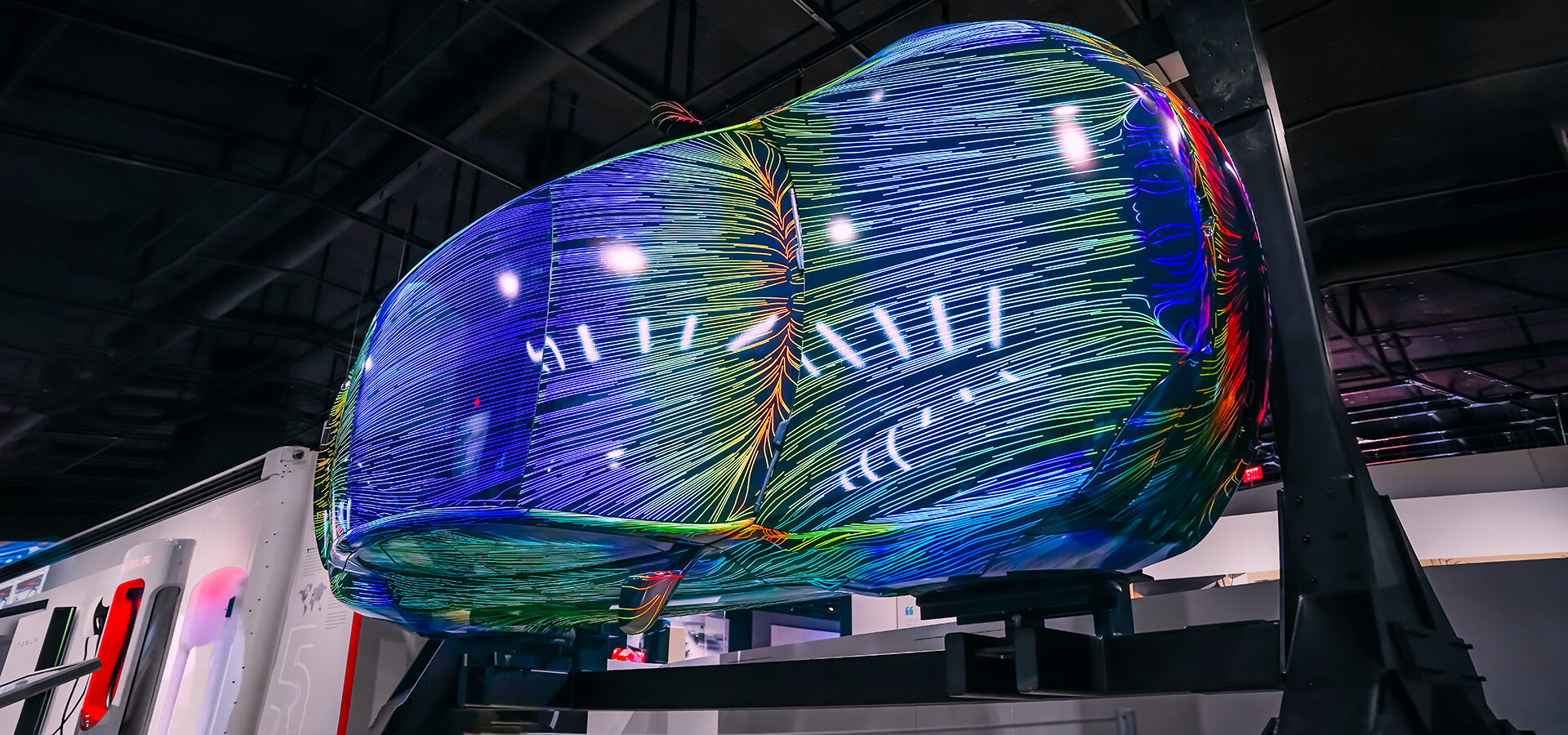A New Exhibition at the Petersen Automotive Museum Takes an In-Depth Look at the Pacesetter for Electric Vehicles
All charged up.
-
CategoryArts + Culture, Makers + Entrepreneurs, Tech
-
Written byShaun Tolson
Elon Musk may be a polarizing figure at the moment, but his flagship company, Tesla, Inc., remains as relevant as ever. The multinational automotive and clean energy company is best known for its fleet of all-electric vehicles, and over the years Tesla has thrived in large part due to its founder’s commitment to innovation—regardless of the cost. “Failure is an option here,” Musk once said. “If things are not failing, you are not innovating enough.”
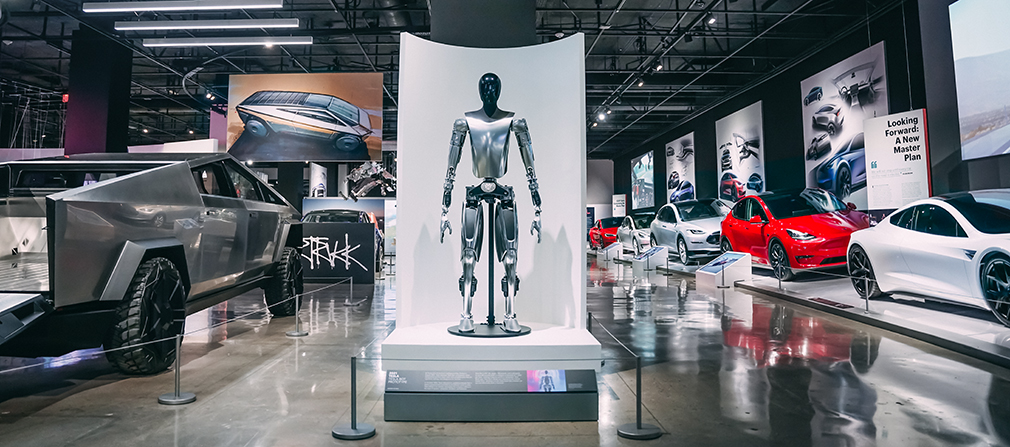
Next July, Tesla celebrates its 20th anniversary. In recognition of that, and also to showcase just how much Tesla has accomplished in only two decades, the Petersen Automotive Museum in Los Angeles recently unveiled a new, almost year-long exhibition titled Inside Tesla: Supercharging the Electric Revolution. Encompassing the entirety of the museum’s Mullin Family Grand Salon—all 13,500 square feet of it—the exhibit features 50 objects, including 15 complete vehicles (some of which are prototypes), which not only showcase the evolution of Tesla’s automotive design and engineering capabilities but assist in telling the story of how Tesla began, where the company is now, and what it has planned for the future.
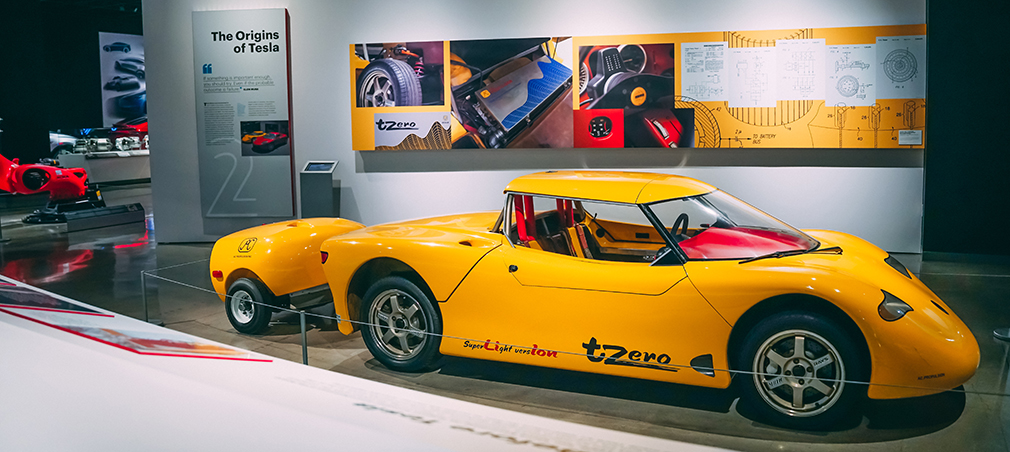
“Tesla has revolutionized the automotive, EV, technology, and manufacturing spaces within a relatively short time span, begetting the question, ‘How did they do that?’” says Terry L. Karges, the museum’s executive director. “This exhibit strives to be a holistic walk-through of how the brand became a global phenomenon and further details what lies ahead.”
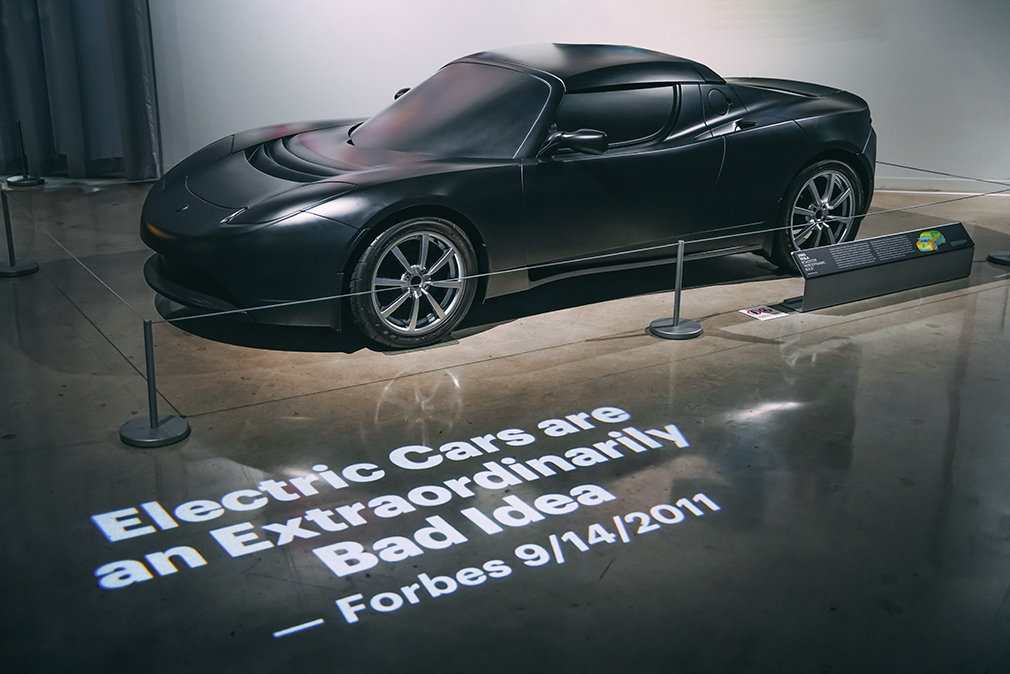
As associate curator Autumn Nyiri acknowledges, the exhibit is likely to attract a diverse audience made up of automotive enthusiasts who revere Tesla, as well as less-knowledgeable visitors who perhaps harbor negative opinions of the brand and are likely to walk through the museum’s doors with preconceptions of the company and its products. Tesla fans, she says, will be visiting the exhibit for the “greatest hits,” a collection of vehicles and prototypes that include the forthcoming Roadster 2.0 and the CyberTruck. But Nyiri hopes that after visiting the exhibition, those who know less about the brand and its backstory will leave the museum with a better understanding and appreciation for what Tesla has accomplished in such a short time.
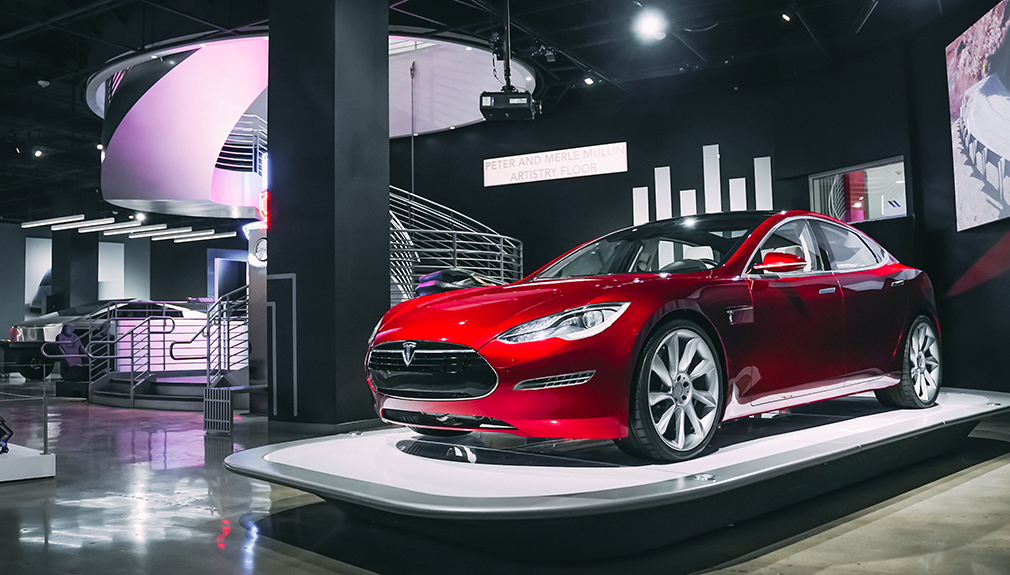
“In less than two decades, Tesla has disrupted a global industry that’s more than 130 years old,” she says. “So many car companies start and fail, but this upstart from Silicon Valley has become the ubiquitous electric vehicle in the minds of so many people.”
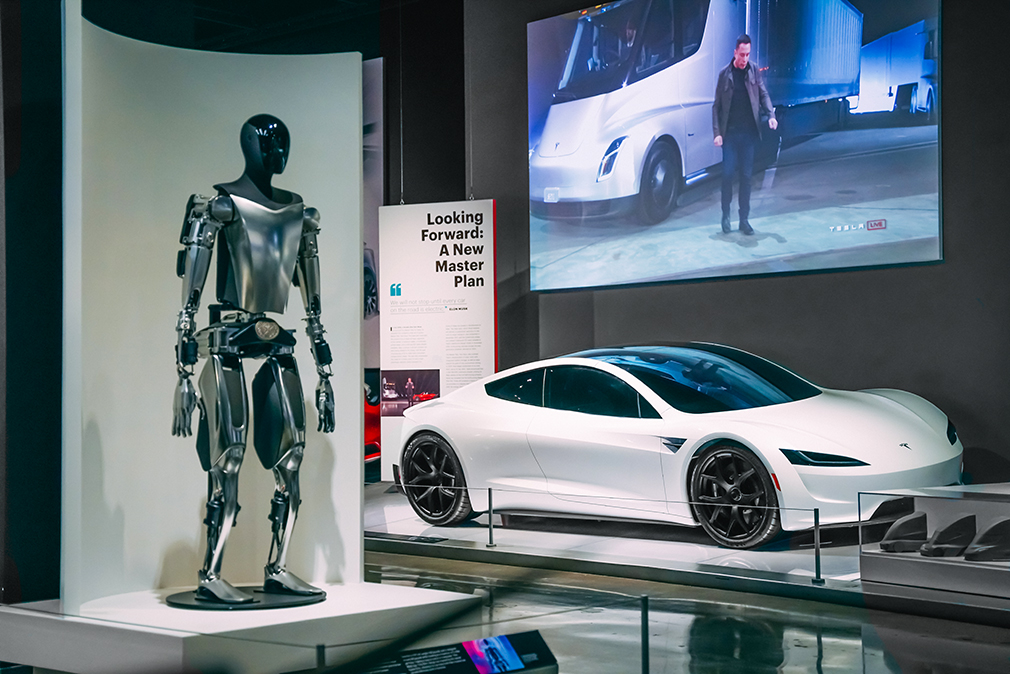
To stage such a comprehensive exhibition, the museum’s team of curators and directors began conceptualizing the project more than a year ago. Working in collaboration with Tesla for much of that planning—90 percent of the objects on display have been loaned to the museum directly from the company—those curators were tasked with the puzzle of how to squeeze everything into the gallery but in a way that told a cohesive story. In short order, the museum’s team recognized that the upcoming exhibit required so much space that only the Grand Salon upstairs could adequately receive it.
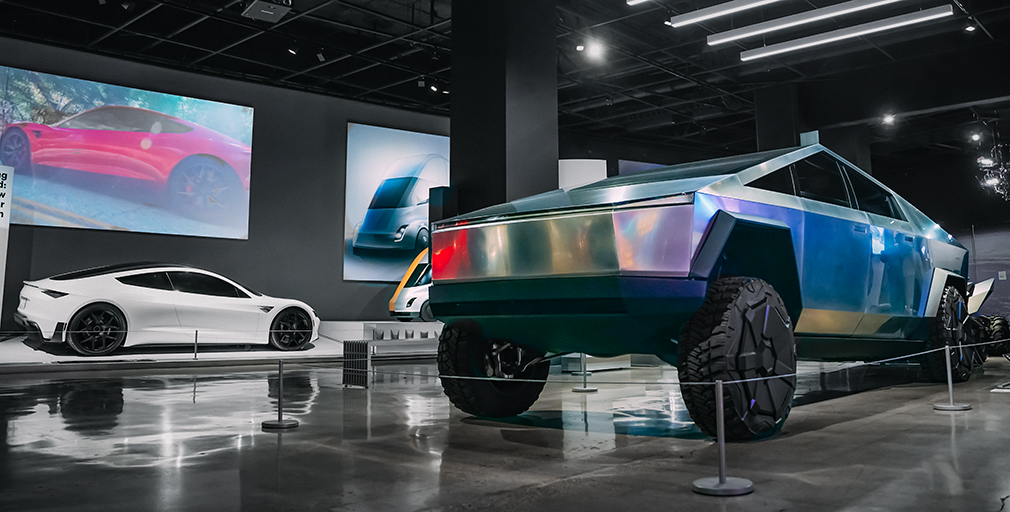
In her research about the brand and its evolution, Nyiri learned far more about Tesla than what the signage throughout the exhibition can reveal; and what stands out most to her is the long-term and broad view that the automotive company employed, even in its infancy. “They knew from the very beginning that for electric vehicles to take hold, there had to be an infrastructure to support them,” she explains. “Many companies that now have electric vehicles only build electric cars; they don’t support the infrastructure to support those cars. But Tesla knew when they decided to make the Model S sedan [in 2008] that if electric vehicles are to become the wave of the future, that they [Tesla] had to also invest in an energy infrastructure, and they’ve done that. There’s charging stations and home wall chargers and also long-range charging facilities.”
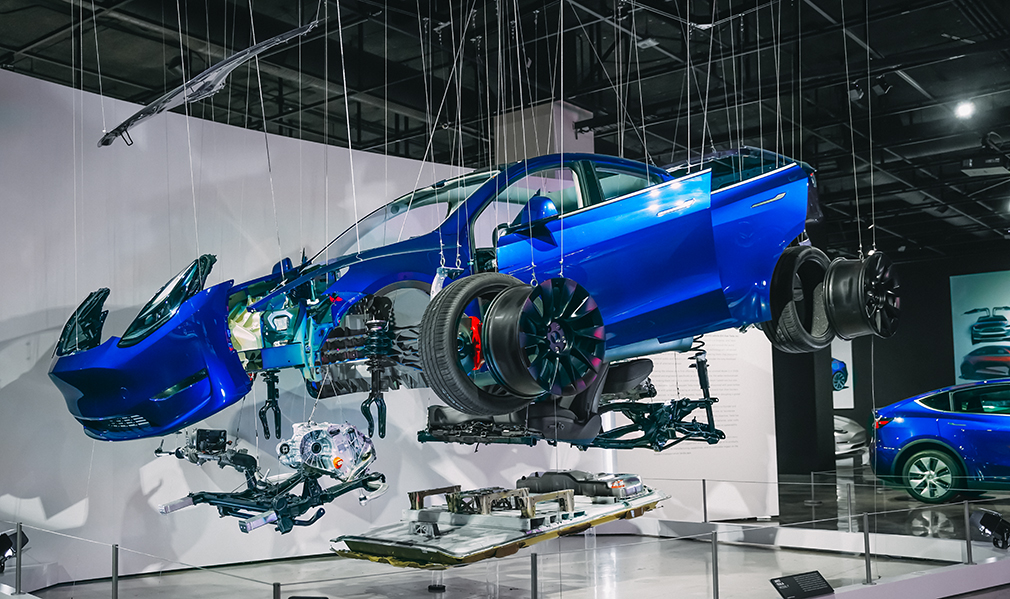
Elon Musk once proclaimed that Tesla’s goal is “to fundamentally change the way the world uses energy,” and the Petersen Museum’s current exhibit epitomizes that with displays that showcase the company’s energy ecosystem, its manufacturing automation, self-driving advancements, and other initiatives, not to mention one-off projects that Tesla has engaged with SpaceX, The Boring Company, and Hyperloop.
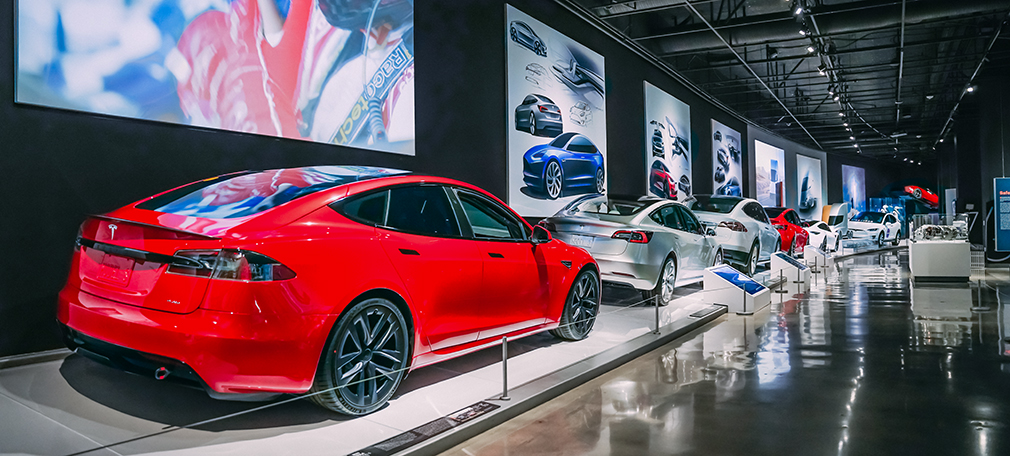
Still, as Musk declared years ago: “Great companies are built on great products.” And it’s the lineup of experimental and prototype vehicles on display at the museum that serve as the foundation of the exhibition. Those are the objects that Telsa fans will gravitate towards, but Nyiri believes the exhibit will also succeed for educating those same fans about how Tesla’s automated assembly lines and engineering techniques have advanced the industry. “They might know the performance stats,” Nyiri says of those Tesla zealots, “but they’ll learn how Tesla is revolutionary not just for how its cars accelerate or their top speed or their range, but for the way the company has revolutionized the manufacturing process.
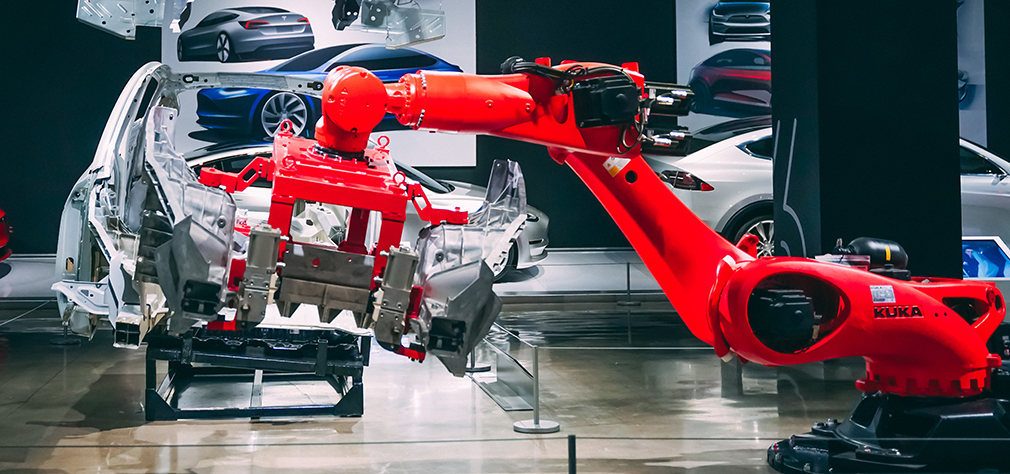
“Tesla has developed a signature style that has continued to evolve, with things as simple as reducing the external side view mirrors and including cameras to make the cars even more streamlined,” she continues. “It’s what makes Tesla so recognizable. You know right away that you’re looking at a Tesla because it doesn’t have door handles, and this is where the true Tesla fans will have some fun—looking at the prototypes and comparing them to the production vehicles that they know and noticing subtle differences.”
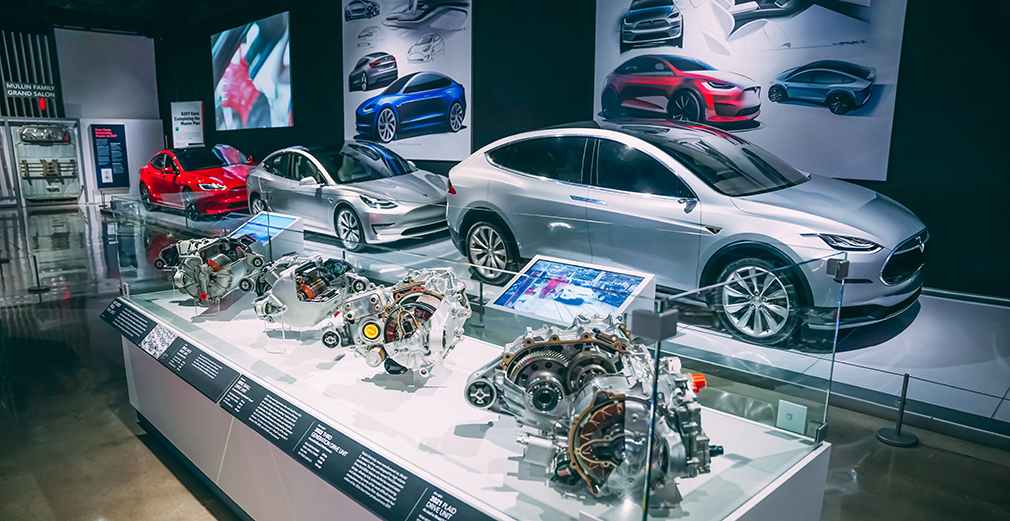
Inside Tesla: Supercharging the Electric Revolution will remain on display at the Petersen Automotive Museum through October 23, 2023.
Stoner Rockers Starcrawler Release Video for “No More Pennies”
Singer Arrow de Wilde delivers another body blow for one of LA’s most exciting bands.
Friday Finds: Curating California
A few of our favorite things from select Golden State makers.
Another Promised Land: Anita Brenner’s Mexico at The Skirball Cultural Center
An exhibition offers a new perspective on the art and visual culture of Mexico and its relationship to the U.S.
Get the Latest Stories




